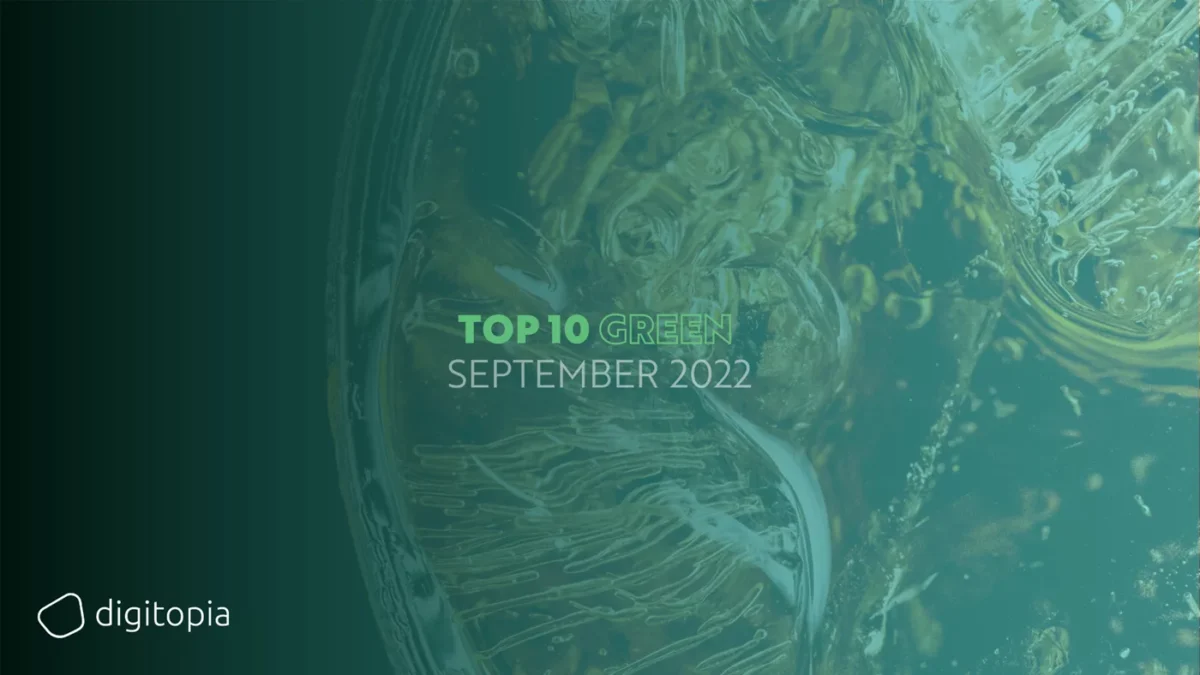
1. Coca-Cola is developing a technology converting air to sugar.
Coca-Cola Europacific Partners and the University of California Berkeley, to develop technology converting air to sugar. To create methods that can be scaled up for turning collected air (CO2) into sugar, CCEP Ventures will work in collaboration with the Peidong Yang Research Group. Technology has the potential to minimize some of the supply chains’ biggest sources of CO2 emissions while lowering material, transportation, and logistical costs.
The creation of lab-scale prototypes could eventually lead to the environmentally responsible production of vital raw and packaging materials. Coca-Cola Europacific Partners’ ambition to achieve net zero greenhouse gas emissions by 2040 is supported by CCEP Ventures’ search for game-changing solutions to market problems.
source: Coca Cola EP
2. Germany, Canada partner on transatlantic hydrogen trade
In an effort to “kickstart the hydrogen economy and to create a transatlantic supply chain for hydrogen,” Germany and Canada signed a $10B hydrogen deal. The deal is considered a step towards Canada’s ambitions to become a top exporter of hydrogen, where Germany will receive the first deliveries by 2025.
source: Techxplore
3. German-Danish Wind Hub in Baltic Will Help Replace Russian Gas
The German and Danish governments join in a 9B euro project to build an offshore wind power hub in the Baltic Sea. The power hub is planned to start operations in 2030 and generate power for 4.1 million households. The German and Danish governments will share the costs and benefits, and upon their approval, new partners from the region will be able to join the project.
source: Bloomberg
4. IKEA stores owner buys 49% stake in Swedish wind power projects
Ingka Group, owner of the most IKEA stores around the globe, announced that it has agreed to buy a 49% stake in three projects planned offshore Sweden from renewables development company OX2 for 58M euros ($57.5M). Upon beginning their operations, the wind development projects will have the capacity to generate energy corresponding to more than 25% of the electricity consumed in Sweden in 2021.
Ingka Group: “It plans to reach 6.5 billion euros in investments by 2030 as part of efforts to increase the use of renewable energy across its supply chain. It owns 575 wind turbines, 20 solar parks, and 935,000 solar panels on the roofs of IKEA stores and warehouses.”
source: Reuters
5. Bill Gates’ Breakthrough Energy backs Terabase’s robot-built solar farms
Terrabase Energy receives a $44M investment from a group of investors, including Breakthrough Energy Ventures. Terrabase aims to build high-capacity solar farms via on-site factories and robotic technology. The startup makes software to oversee and design the construction of the farms.
Breakthrough Energy Ventures is a VC firm that focuses on climate change. Breakthrough Energy was founded by Bill Gates and includes many high-influence individuals such as Jeff Bezos and Masayoshi Son among its board members.
source:Tech Crunch
6. Nontoxic material found to be ultra-strong solar energy harvester
Researchers from Imperial College London, Cambridge, UCL, Oxford, Helmholtz-Zentrum Berlin in Germany, and others “have found a material that absorbs light more strongly than conventional solar cell technologies and can be printed from an ink.
This technology has the potential for making lightweight solar cells which can be easily transported or used in aerospace applications.”
source: Techxplore
7. Toyota is working with a US lab to build a fuel-cell power generator (Techxplore)
Toyota partners with National Renewable Energy Laboratory to study and develop the performance of one-megawatt fuel cell systems and energy storage systems. The $6.5M partnership will be funded by Toyota and the U.S. Department of Energy’s Hydrogen and Fuel Cell Technologies Office, and will have implications for electric cars, power generation, energy storage, and various clean energy technologies.
source: Techxplore
8. A New Approach to Car Batteries Is About to Transform EVs
A major issue around electric vehicle (EV) design is the weight of the batteries. The conventional design approaches can provide only so much space for batteries to be placed within the car structure, which also considerably limits the distance that can be travelled at once.
Companies such as Tesla in the US, and BYD and CATL in China are working on new designs to integrate the battery into the car structure, distribute and reduce weight, create bigger interior space in the car, and decrease manufacturing costs. With 32.6% market share in 2021, the largest EV battery producer Contemporary Amperex Technology (CATL) estimates that “production vehicles of this design will achieve ranges of 1,000 kilometres (621 miles) per charge—a 40 percent increase over conventional battery tech.”
source: Wired
9. By 2030, 50 per cent of power capacity will be from non-fossil sources, India tells UN
India updated and submitted its Nationally Determined Contribution (NDC) to the UN climate change body. In the updated NDCs, India pledged to achieve 50% cumulative electric capacity from non-fossil fuel sources by 2030.
The country also promised to reduce emissions intensity by 45% by the same date. The pledge serves as a step towards India’s goals to become carbon neutral by 2070.
source:Economic Times
10. Campaigners call on UN Women to pull out of BlackRock partnership
The UN agency responsible for promoting gender equality is being urged to pull out of a partnership with BlackRock, the world’s biggest investment fund manager, over the company’s “record of prioritising profits over human rights or environmental integrity.”
source: The Guardian

